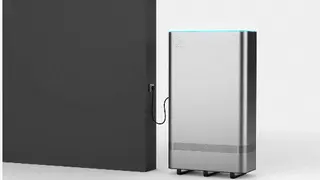2019 promises a lot for electric vehicles (EVs) as this is the year when many of the leading carmakers, like Hyundai, Audi and Mercedes will be electrifying their products for the Indian market.
But apart from them, there are many start-ups that are working towards improvisation of electric vehicles, especially in increasing the range and providing quicker charging solutions for these vehicles.
Started by a few IIT graduates, Bengaluru-based Log 9 Materials is one such start-up that has been working hard to solve the ‘range anxiety’ of battery-run vehicles. It is an IIT-Roorkee spin-off working in the nanotechnology domain.
Graphene, new kid on the block
The company focusses on Graphene Nanotechnology, with an aim to innovate and develop end-user commercial applications of the wonder material ‘graphene’, says Akshay Singhal, Founder of Log 9 Materials.
Talking about his innovation, 25-year-old Singhal says metal-air battery is a technology being driven by Log 9 to revolutionise clean energy generation. Metal-air battery, powered by water, air and metal, is a primary energy generation technology quite similar to a fuel cell.
It uses graphene to make the batteries commercially viable and economical.
Conventional lithium-ion batteries store energy rather than generating it. Thus, if one takes the example of an EV, the car has a range of 100-150 km post which it has to be charged, which in itself takes 5-6 hours. But this battery technology has 10x more energy density which will provide a range of more than 1,000 km, post which the metal can be replaced within minutes.
“The energy generated is completely clean, zero emission and this is a truly environment-friendly battery technology built with sustainable raw materials. The metal itself is recyclable once it has been used in the battery to generate energy,” explains Singhal.
Also, “The user can fill water after every 200 km instead of charging the battery and the water and aluminium metal will regenerate the lithium-ion battery of the car for another 200 km,” he explains. However, after 1,000 km, the user has to change the metal (aluminium) which costs around ₹4,500.
The metal case is quite bulky and takes up the whole rear seat of the car but the company is working to reduce the size by almost one-third over the next one year.
For prototyping and testing, the company has used Mahindra e20 because that is the only “proven electric car available in the Indian market now,” says Singhal, adding that once the company reduces the size of the metal compartment, the product can be used in many other electric vehicles.
Apart from this technology, Log 9 is also working on a lot of other environment-friendly products for the future. “Our recent research shows extraordinary potential for the launch of various life-changing graphene-based products like non-electric water purification systems and industrial effluent treatment,” he says.
Log 9 currently holds three patents in graphene synthesis and graphene products. “We are trying to bridge the gap between academic research and commercial products, which are not coming out in the market,” says Singhal.
Asked about investments and who is funding the company, he says, “We recently secured a pre series-A funding of around ₹3 crore from Metaform Ventures, Hemant Luthra, Chairman, Mahindra CIE, GEMS and other angel investors. This is a continuation of Log 9’s Pre Series-A funding received from GEMS Advisory earlier in 2017.”
Apart from Singhal, there are 33 people working for the company, including Kartik Hajela (24 years old), who is the co-founder and Vice-President of the company.
Interestingly, the average age of the team is 26 years and most of them are IITians.
Set to ride a new wave
According to analysts tracking the sector, the year 2019 will create a new wave for electric cars in India.
“We will find original equipment manufacturers (OEMs) introducing new electric vehicles. Though focus will be on two-wheelers and three-wheelers, we will find new OEMs also introducing electric cars,” states Puneet Gupta, Associate Director at IHS Markit.
Key OEMs to watch are Hyundai Motor India, Mahindra & Mahindra and Maruti Suzuki India, he says.
“Also, electric infrastructure will start unfolding. We may see action from many EV infra companies which are about to unveil their products. It will undoubtedly be action time for many start-ups,” he asserts. Proving his point is the fact that many companies have already started showcasing their works in the recent months. For instance, companies like Ebike, which is an electric bike rental/taxi/ delivery platform that provides economical and environmentally-friendly travelling options for everyone.
The company is using the electric bikes of Okinawa Autotech to rent out to users and it aims to bring on road a fleet of 2 lakh bikes in about 100 cities across the country over the next few years with its franchise model.
Swap your battery
In the battery space, there are also companies that have introduced swapping of batteries of these vehicles so that the consumer does not have to worry about range anxiety. Consumers can just exchange the used battery with a fully charged one to continue their journey. Sun Mobility, a provider of energy infrastructure and services for EVs, and SmartE, an EV fleet operator, recently entered into a partnership for providing battery-swapping service.
SmartE plans to roll out 1 lakh vehicles by 2022 to help reduce close to a million tonnes of carbon emissions, the equivalent of planting 17 million trees per year.
Similarly, electric two-wheeler manufacturer Twenty Two Motors has partnered with Taiwan-based Kymco for battery charging solutions — Ionex and Ionex Commercial — which work just like mobile charging stations at airports or malls, and will enable swapping of batteries even at nooks and corners.
Any retailer or even a kirana shop owner can install the Ionex solution for just ₹10,000 and can provide battery-swapping service to EV owners.
“A full charge of a battery will consume around one unit of electricity, so the service provider can charge just ₹20 or so, as per our calculation. We are approaching various oil companies like Indian Oil and Hindustan Petroleum also for the same,” says Parveen Kharb, Chief Executive Officer and co-founder, Twenty Two Motors.
All this means there’s going to be a lot of action and one can only wait and watch what comes next in the EV space!








Comments
Comments have to be in English, and in full sentences. They cannot be abusive or personal. Please abide by our community guidelines for posting your comments.
We have migrated to a new commenting platform. If you are already a registered user of TheHindu Businessline and logged in, you may continue to engage with our articles. If you do not have an account please register and login to post comments. Users can access their older comments by logging into their accounts on Vuukle.